Abstract
There is conflicting evidence about the effect of parental consanguinity on fetal growth. Previous studies have not always allowed for other factors that are known to affect birth weight, in particular, gestational age, parity, and maternal height. We have therefore studied this question in the Pakistani Moslem population in Birmingham. Babies born to parents who were first cousins were on average 80 g lighter than those born to unrelated parents, but this difference was not significant for the size of the sample studied. Nor were there any differences in the other measurements of the babies. After expressing birth weight in terms of centiles for gestational age, sex, parity, and maternal height, however, while there was no difference in the overall distribution of centiles, there were more poorly grown babies--that is, weight below the 10th centile--in the first cousin group. We conclude that parental consanguinity is associated with an increase in the number of poorly grown babies but that the overall effect on mean birth weight is small.
Full text
PDF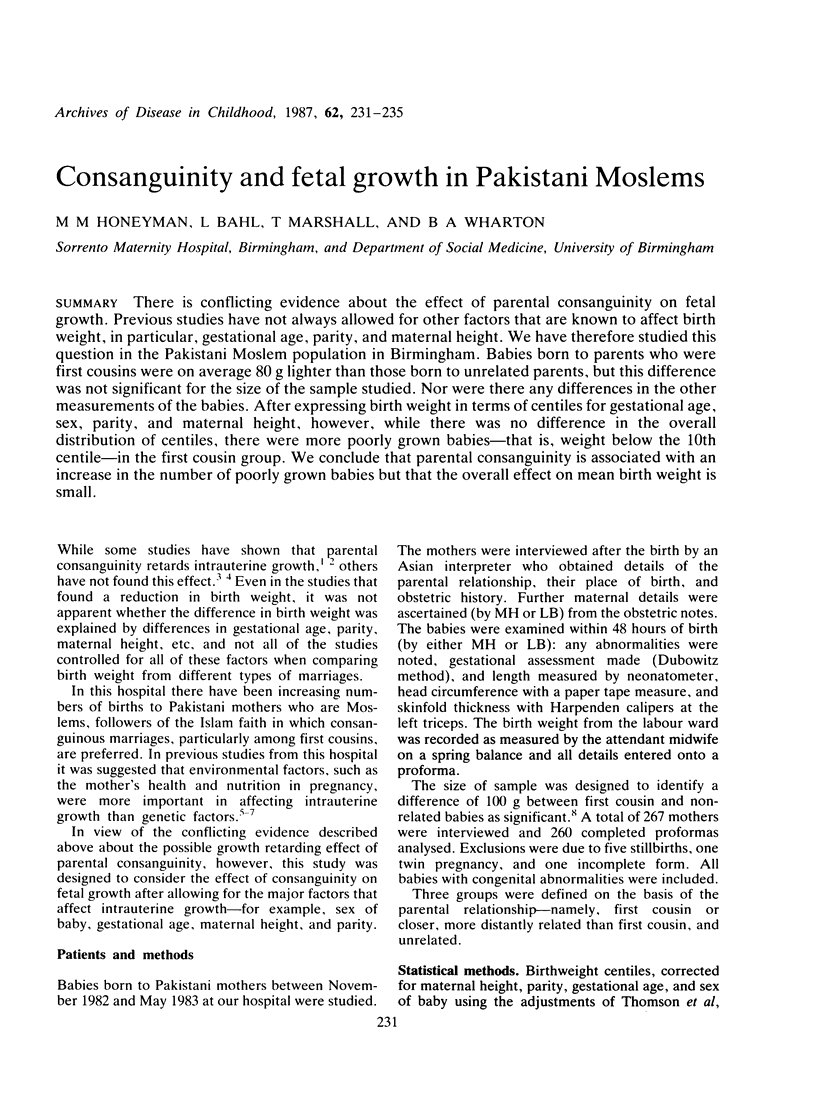
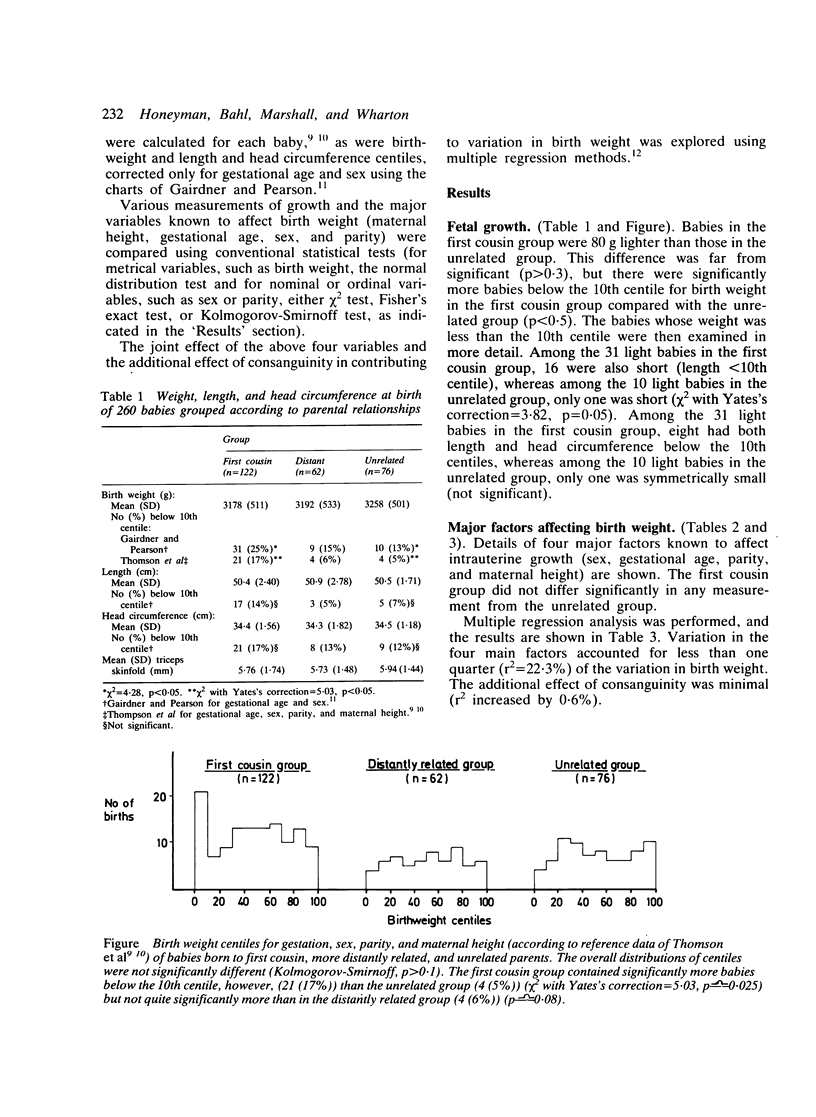
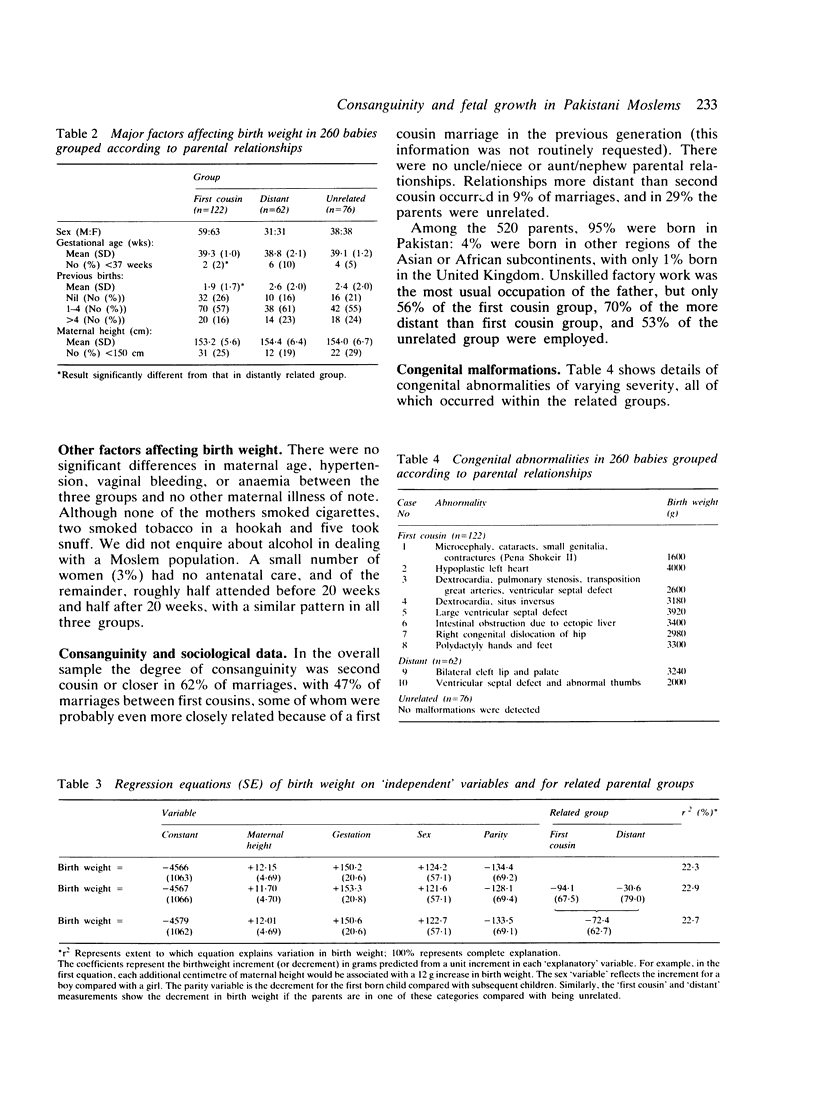
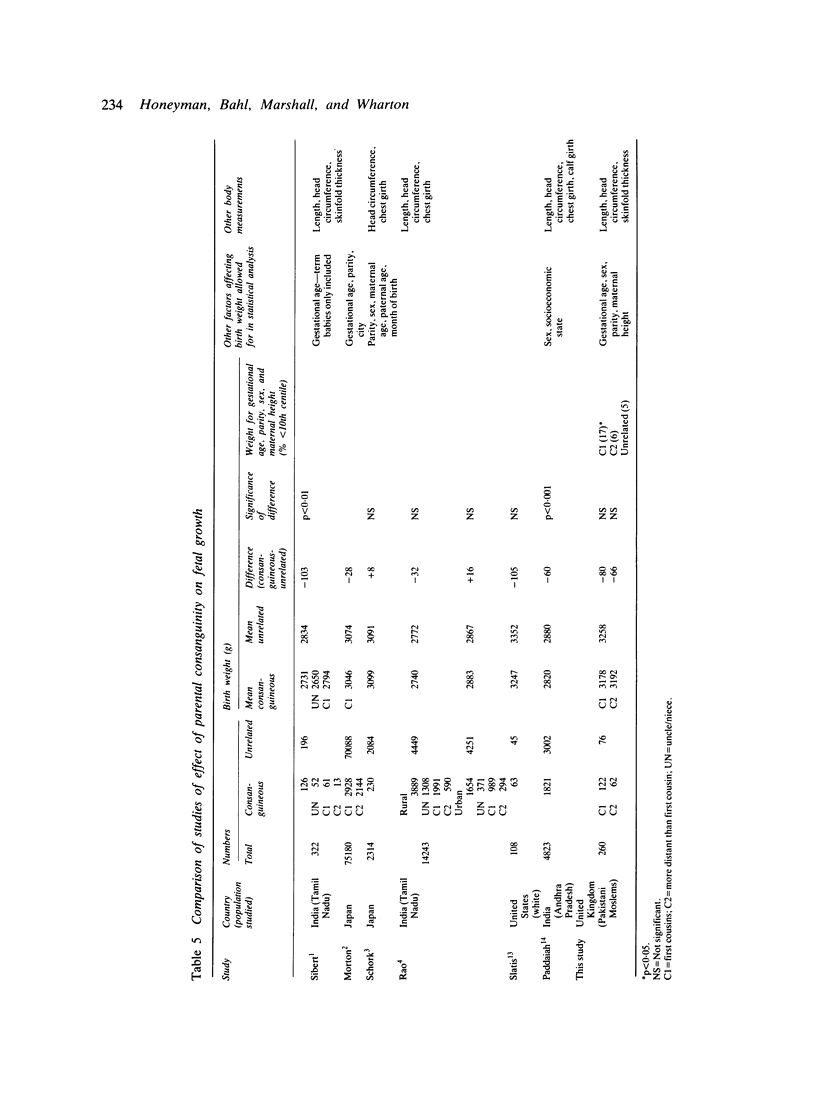
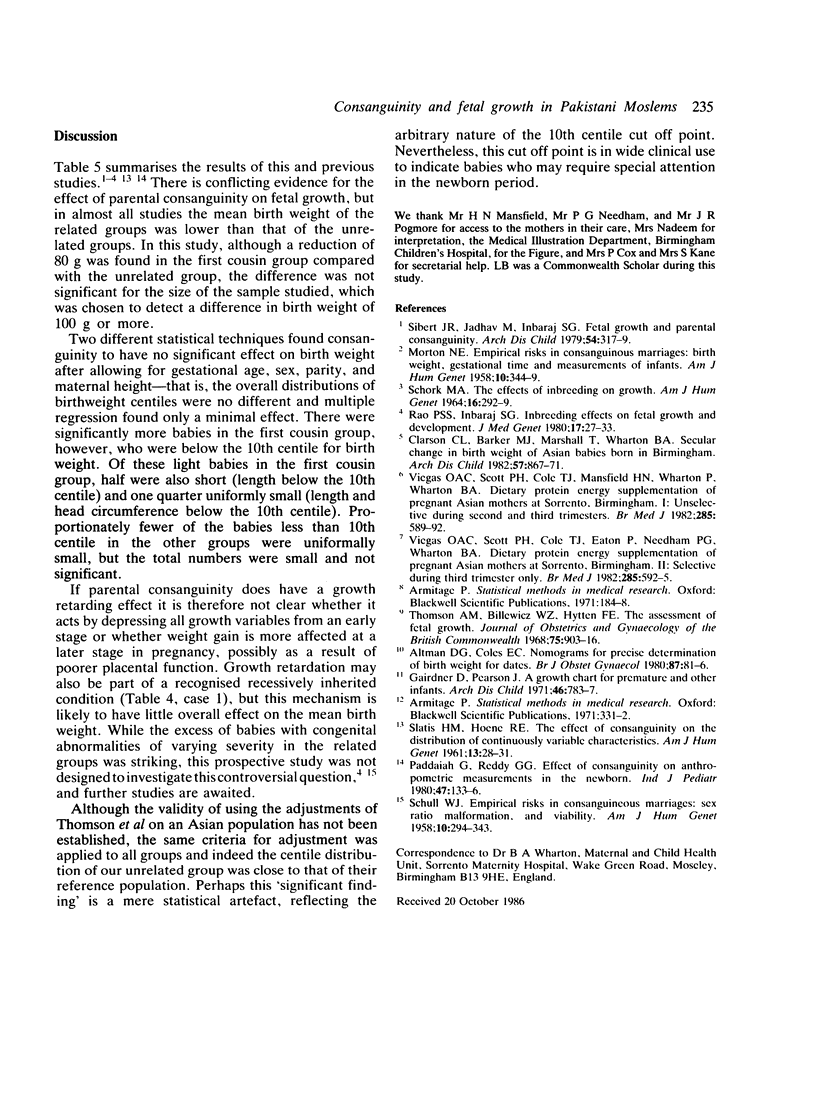
Selected References
These references are in PubMed. This may not be the complete list of references from this article.
- Clarson C. L., Barker M. J., Marshall T., Wharton B. A. Secular change in birthweight of Asian babies born in Birmingham. Arch Dis Child. 1982 Nov;57(11):867–871. doi: 10.1136/adc.57.11.867. [DOI] [PMC free article] [PubMed] [Google Scholar]
- Gairdner D., Pearson J. A growth chart for premature and other infants. Arch Dis Child. 1971 Dec;46(250):783–787. doi: 10.1136/adc.46.250.783. [DOI] [PMC free article] [PubMed] [Google Scholar]
- MORTON N. E. Empirical risks in consanguineous marriages: birth weight, gestation time, and measurements of infants. Am J Hum Genet. 1958 Sep;10(3):344–349. [PMC free article] [PubMed] [Google Scholar]
- Rao P. S., Inbaraj S. G. Inbreeding effects on fetal growth and development. J Med Genet. 1980 Feb;17(1):27–33. doi: 10.1136/jmg.17.1.27. [DOI] [PMC free article] [PubMed] [Google Scholar]
- SCHORK M. A. THE EFFECTS OF INBREEDING ON GROWTH. Am J Hum Genet. 1964 Sep;16:292–300. [PMC free article] [PubMed] [Google Scholar]
- Sibert J. R., Jadhav M., Inbaraj S. G. Fetal growth and parental consanguinity. Arch Dis Child. 1979 Apr;54(4):317–319. doi: 10.1136/adc.54.4.317. [DOI] [PMC free article] [PubMed] [Google Scholar]
- Slatis H. M., Hoene R. E. The Effect of Consanguinity on the Distribution of Continuously Variable-Characteristics. Am J Hum Genet. 1961 Mar;13(1 Pt 1):28–31. [PMC free article] [PubMed] [Google Scholar]
- Thomson A. M., Billewicz W. Z., Hytten F. E. The assessment of fetal growth. J Obstet Gynaecol Br Commonw. 1968 Sep;75(9):903–916. doi: 10.1111/j.1471-0528.1968.tb01615.x. [DOI] [PubMed] [Google Scholar]
- Viegas O. A., Scott P. H., Cole T. J., Eaton P., Needham P. G., Wharton B. A. Dietary protein energy supplementation of pregnant Asian mothers at Sorrento, Birmingham. II: Selective during third trimester only. 1982 Aug 28-Sep 4Br Med J (Clin Res Ed) 285(6342):592–595. doi: 10.1136/bmj.285.6342.592. [DOI] [PMC free article] [PubMed] [Google Scholar]
- Viegas O. A., Scott P. H., Cole T. J., Mansfield H. N., Wharton P., Wharton B. A. Dietary protein energy supplementation of pregnant Asian mothers at Sorrento, Birmingham. I: Unselective during second and third trimesters. 1982 Aug 28-Sep 4Br Med J (Clin Res Ed) 285(6342):589–592. doi: 10.1136/bmj.285.6342.589. [DOI] [PMC free article] [PubMed] [Google Scholar]


